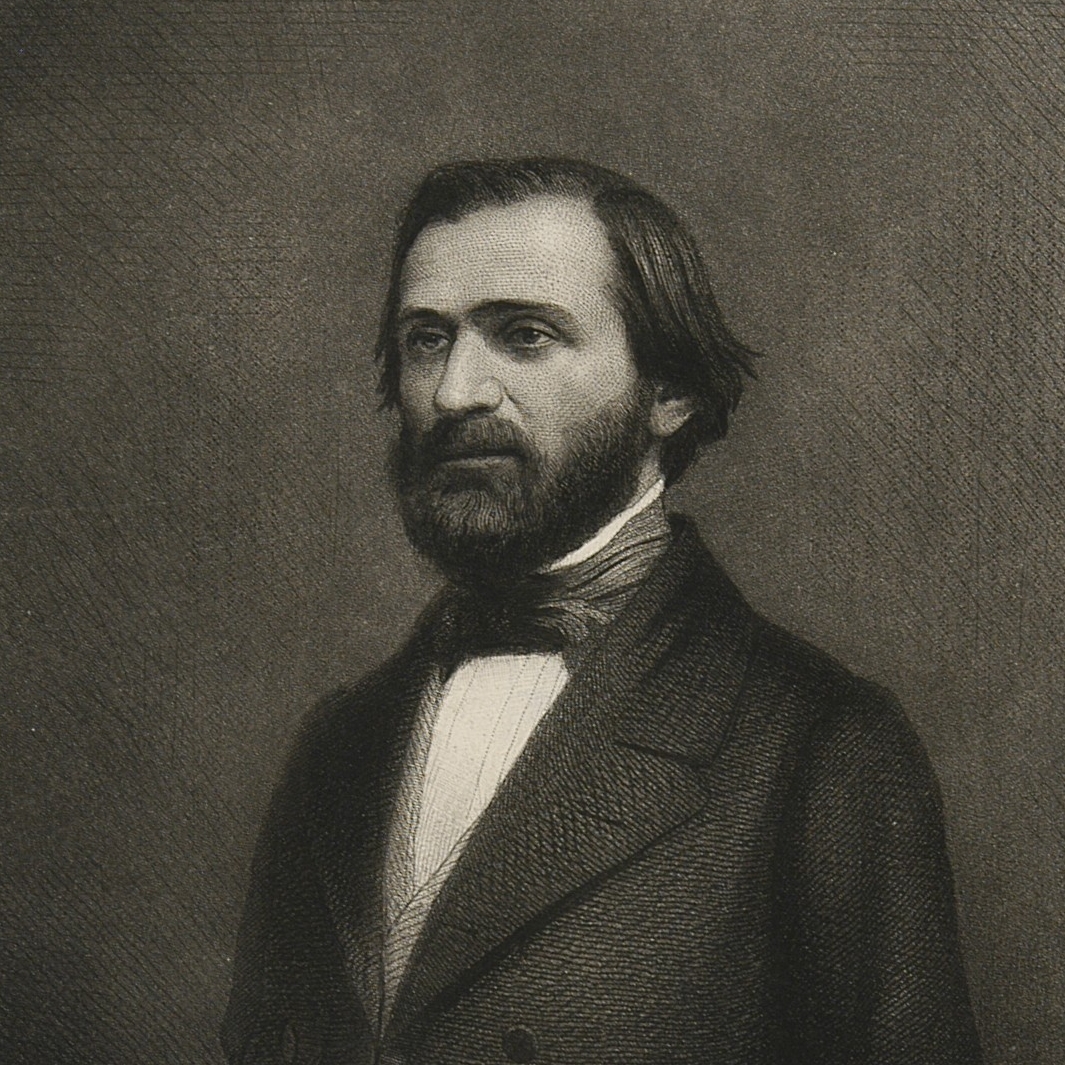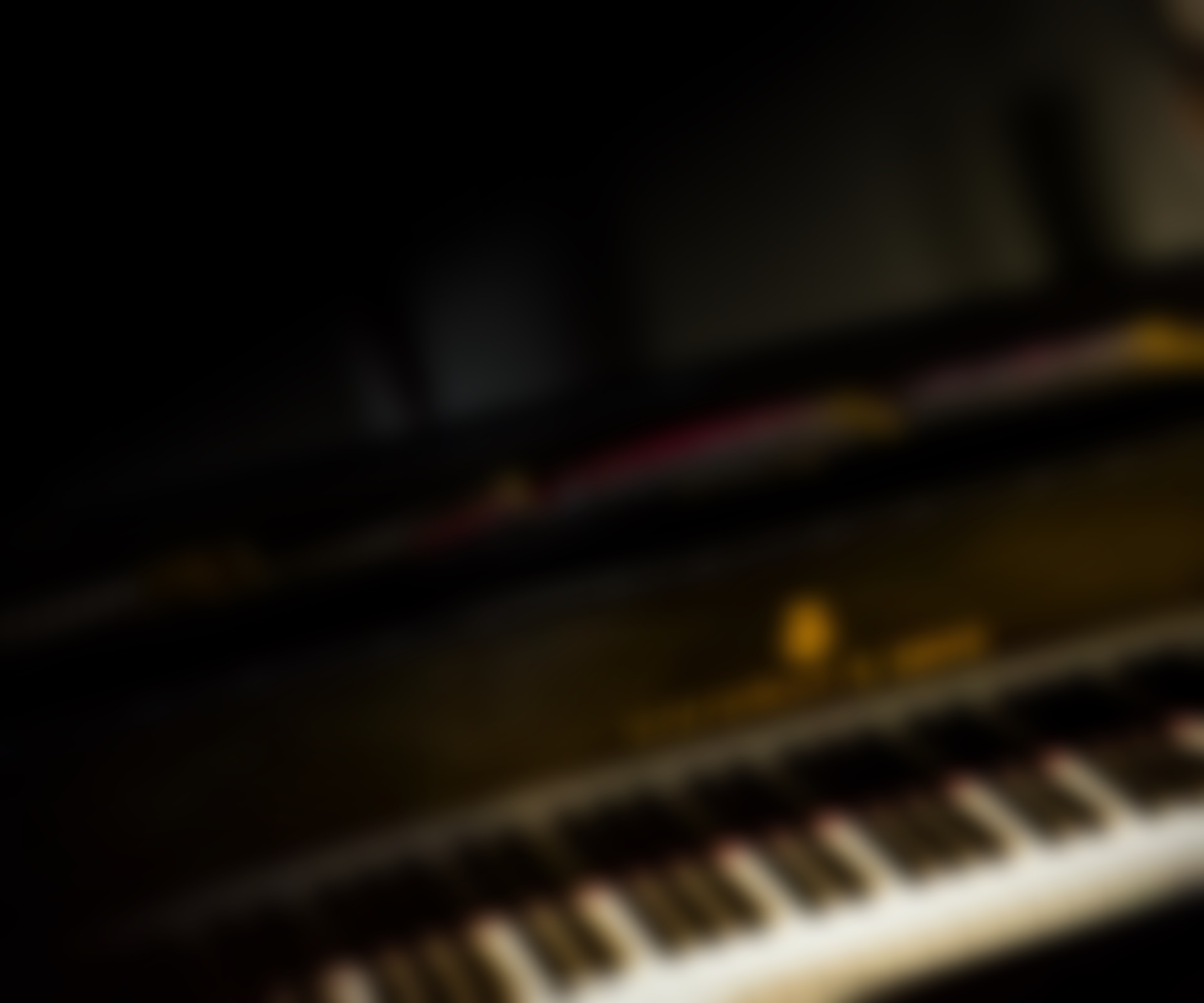
Giuseppe Verdi (1813–1901) was born near Parma to a family of very limited means, which – according to his own account – effectively hindered his access to education.
He took his first music lessons with a local organist, then studied with a maestro di musica in the nearby town of Busetto. He would later often pass over these first educational efforts, striving to be viewed as a self-made genius. In the early 1830s Verdi decided to study at a Milan conservatoire, but was rejected, an affront he took long to forget. In the end he took private lessons with a répétiteur from La Scala, and it was this renowned theatre that approached him with his first opera commission a few years later.
Oberto's premiere (1839) was to prove the beginning of the longest career in opera history. At the outset, he suffered a few crushing blows: the deaths of his two children and wife. He was also badly affected by the flop of his second opera. Yet, the hardships did not break him. Already in 1842 he completed Nabucco, and opened a new chapter in his private and professional life.
In the following eight years Verdi composed fourteen operas, most of which were coldly received at first. This pushed the composer to relentlessly hone his composing technique and musical language. A breakthrough came with Attila (1846) and Macbeth (1848), yet real triumphs came in the 1850s, when he staged such masterpieces as Rigoletto (1850), Il trovatore and La traviata (1853). Critics praised them as the epitome of composing masterliness and admired the ease with which Verdi mastered the form.
For the next few years Verdi was inspired by French grand opera, which bore fruit in the form of Les vêpres siciliennes and Don Carlos. After the premieres of La forza del destine and Un ballo in maschera came the debut of Aida, which seemed to be the composer's last work. Aged 64, Verdi focused on Requiem, then gave up writing for six years altogether. He came back in 1881 with a revised version of Simon Boccanegra, followed by a new version of Don Carlos two years after. More pieces were still to come. His career, so long and unbelievably abundant in masterpieces, came to a close with Othello and Falstaff. He was among the very few who lived to enjoy fame, wealth, the love of opera-goers, and a peaceful and prosperous old age.
Verdi's imprint on opera is unparalleled. He broke with 18th-century conventions grounded in Rossini's works and brought Italian opera into the 20th century. He did not write as many pieces as Donizetti did, but the continuous efforts he took to perfect his musical expression brought about a rapid evolution of the opera genre.
He was a composer who made use of novelties, but kept his works conservative. He never forgot about his audience, took care to satisfy them, winning their loyalty and admiration in return. He died on 27 January 1901. His funeral was attended by 300 thousand people, including Giacomo Puccini, Pietro Mascagni, and Ruggiero Leoncavallo. Arturo Toscanini conducted the chorus from Nabucco during the service.
AIDA
Giuseppe Verdi
Opera in four acts | Libretto: Antonio Ghislanzoni based on a scenario by Auguste Mariette | In the original Italian | Premiere: 24 April 2005
NABUCCO
Giuseppe Verdi
Opera in four acts | Libretto: Temistocle Solera after Auguste Anicet-Bourgeois and Francis Cornue | In the original Italian | Premiere: 26 June 1992
RIGOLETTO
Giuseppe Verdi
Opera in three acts | Libretto: Fancesco Maria Piave after Victor Hugo | In the original Italian | Premiere: 12 March 1997





